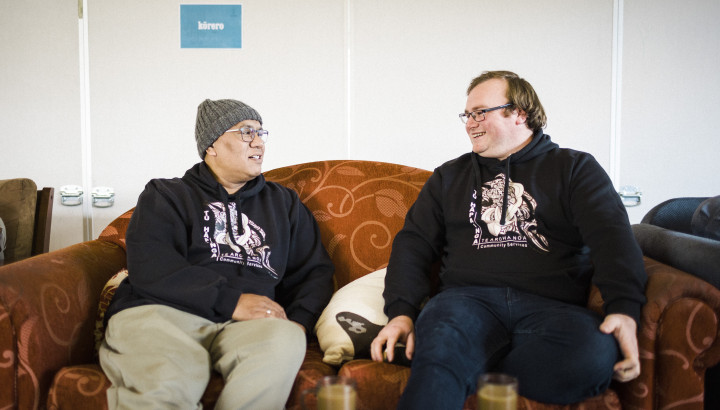The Change Journey
Remember, you’re not in this alone, there is support available to help you on your journey.
Taking Steps For Change
Want to know how to make some changes? Ka rawe/excellent! This page has some ideas to help you think about what's important to you and why you want to make changes. You can learn about when things start to go wrong, and what you can do when you notice this happening. There will be some things here that apply to you, and others that don't, so take what you need from this page.



-
When taking steps towards change, it is useful to have a think about who in your life you can rely on, and who will best support you to bring about the changes you want.
We invite you to watch this short video and consider who is on your team, and how they will be supporting you on your journey.
{{ duration }}Who is on your team?
Play Video -
A great first step towards change is thinking about what's important to you. Pick which values mean something to you and see what they could look like.
-
Beliefs are fixed ideas about ourselves, other people, and the world we live in. These are usually formed in childhood and get stronger as we grow older. They are things we hold to be absolutely true deep down, below our surface thoughts, and we believe them without question.
We invite you to watch this short video which describes how our internal belief systems can strongly influence us and how, with practise, we can begin to notice where unwanted or unhelpful thoughts and behaviours are stemming from.
{{ duration }}The dozen dirty tricks our mind plays
Play VideoHow do your beliefs influence your behaviour?
Situations don't control the way we think - we do. If you allow situations to control the way you think then this may lead to behaviours that are not safe. Think about how your beliefs and attitudes affect how you react to situations. Next time you're in a situation which makes you feel angry or hurt, challenge yourself to take control of how you respond.
Here's an example of how different beliefs can impact the same situation:
-
It is useful to know and be able to recognise the types of situations that could escalate or lead to harmful thoughts or behaviours.
People can better manage their reactions if they know what makes them tick, or feel ticked off, and have the right tools and strategies in place to help them.
We invite you to watch these short videos to hear about some of the situations that can trigger strong feelings and emotions. Consider what sort of situations tend to trigger a reaction for you, and what tools or strategies you might be able to put in place to help you.
{{ duration }}Preparing for tough situations
Play Video{{ duration }}Stepping away from jealousy
Play Video -
These are the things we might notice when something doesn't feel right or something is about to go wrong.
PhysicalThoughtsBehaviourEmotionsStories are the things we tell ourselves, or others, to explain or justify what has happened, or make sense of a situation.
We invite you to watch this short video about how the stories we create in our head can impact both us and our relationships. Unhelpful stories have the potential to make a bad situation worse. We invite you to begin noticing the early warning signs and stories that show up for you, when faced with a difficult situation.
{{ duration }}Being mindful of your echo chamber
Play Video -
Good communication is an important part of all relationships and is an essential part of any healthy partnership. All relationships have ups and downs, but a healthy communication style can make it easier to deal with conflict and build a stronger and healthier partnership.
We invite you to watch these short videos to consider how your communication style could be impacting on your relationships, and how you can communicate more effectively to resolve issues.
{{ duration }}Respectful communication guidelines
Play Video{{ duration }}Solving problems
Play Video -
Coping strategies are actions or thoughts that you put in place to make sure you can manage challenging situations and avoid losing control.
We invite you to watch these short videos and consider some of the coping strategies you currently use, or others that could potentially work for you.
{{ duration }}Immediate safety
Play Video{{ duration }}Managing distress
Play Video -
Looking for help for someone else?
Go to supporters pageNeed help not sure where to find it?
Use the Service Finder tool below to find the right support for you.